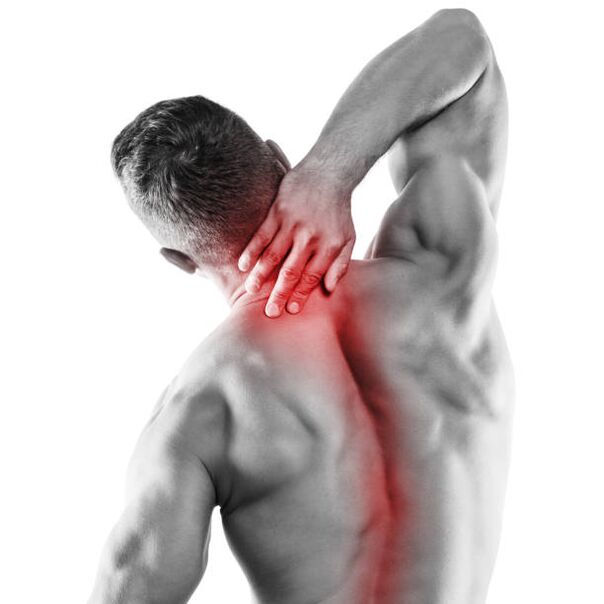The pain and stiffness of the neck are caused by improper load and some pathological conditions of the cervical spine. The sensation of neck pain is almost always accompanied by its limited mobility-when trying to turn or tilt the head, there will be a sharp or growing pain. Sometimes it is so powerful that a person is forced to move the whole body instead of moving the neck. In this case, the pain can not only touch the neck, but also spread to nearby areas-chest, arms, head, shoulders; accompanied by tinnitus, numbness of hands and fingers, and dizziness.

In order to prescribe an effective treatment plan, you need to determine the cause of neck pain-this will be the task of the specialist you contact. Let us figure out what causes cervical pain.
Causes of neck pain
There are two main reasons for pain and restricted neck movement: muscle stiffness and cervical spine disease.
Stiff neck
Stiffness is a condition where the muscles become tighter (unable to relax) and resist any attempts to move. Stiff neck muscles is not an independent disease-it either occurs due to lack of physical activity, or it occurs with certain diseases.
Related to the sedentary lifestyle-working in front of the computer, driving, lack of exercise-cervical vertebrae may be displaced, painful, and spasms caused by improper circulation in the cervical spine.
Stiff neck may also be a symptom of the following symptoms:
- Encephalitis, meningitis, cerebral hemorrhage. Other symptoms of these diseases: headache, weakness, nausea, fever, dizziness, skin rash.
- Parkinson's disease. It is accompanied by tremors, unbalanced movements and automation, and speech problems.
- Injured neck. In this case, the pain always precedes the severe mechanical effects (falls, blows) on the neck.
Cervical spondylosis
Due to spinal diseases, cervical pain and movement limitations may occur:
- hernia. Severe pain radiates to the shoulders and arms, and the palms will tingle and numb. There is a kind of "neck and back pain"-a kind of severe pain that hinders the movement of the entire upper body.
- Cervical osteochondrosis. Accompanied by headache, tinnitus, decreased vision, flashing "flies" in front of eyes, pain in arms and shoulders.
- Cervical spondylosis. Pain not only occurs in the neck, but also in the shoulders. She is most disturbing in the morning and evening.
- Spondylopathy. It is accompanied by occipital pain, numbness and tingling of the neck, hearing and vision problems, and dizziness may occur.
- The carotid artery is asymmetrical. It is characterized by tinnitus, headache, darkening of the eyes, and increased blood pressure.
Which doctor should I see for cervical spondylosis?
First of all, we recommend that you consult a general practitioner (therapist), who will form the direction for further examinations. In order to clarify the diagnosis and direct treatment appointments, a narrower range of doctors can be involved: rheumatologists, neurologists, traumatologists, orthopedic doctors. Patients may also be referred to chiropractors and massage therapists.
Diagnose the cause of neck pain
After the oral questioning, the doctor examines the patient: explore the surface of the neck, check the sensitivity of the arms and legs, the reflex status, and find the presence of muscle cramps and hypertonicity.
Hardware technology used:
- Radiography
- Nuclear magnetic resonance
- CT scan;
- Electromyography (EMG);
- Ultrasound Doppler imaging (USDG) of blood vessels in the neck.
Blood and urine tests can be performed to detect inflammatory processes in the body.
Treats cervical spine pain and stiffness
Treatments for neck soreness may include:
- Physical therapy courses (magnetic therapy, electrophoresis, ultrasound therapy, shock wave therapy).
- Prescriptions for painkillers, tranquilizers, anti-inflammatory drugs, and muscle relaxants.
- Holistic medical methods (acupuncture, massage, moxibustion, hydrotherapy, stone therapy, vacuum therapy).
- Physical therapy, correct organization of the workplace, posture control.
- Surgical treatment. Radical methods of surgical treatment are prescribed only in cases where conservative methods are ineffective or more serious diagnoses (which initially involve surgery).
Treating neck pain in a medical center
The doctor's high professionalism and impressive work experience enable you to choose the right neck disease treatment plan for each patient. The medical center is equipped with modern high-tech and reliable laboratories and equipment for diagnosis, physical therapy and treatment. Experienced masseurs and chiropractors can not only help relieve neck pain, but also improve the overall physical condition.
If you are concerned about neck pain and limited mobility, please make an appointment with us and don't expect your condition to get worse.





































